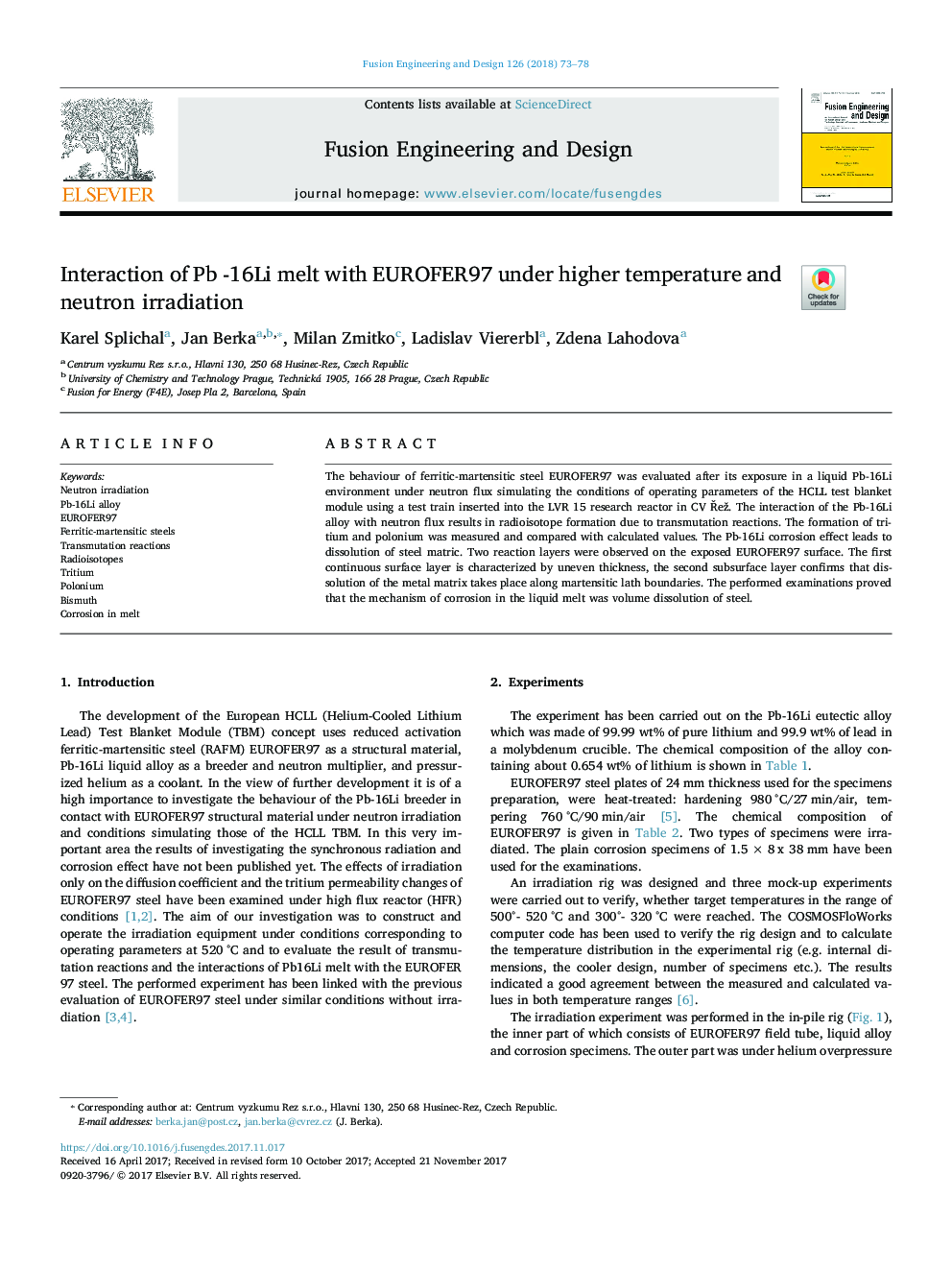| Article ID | Journal | Published Year | Pages | File Type |
|---|---|---|---|---|
| 6743728 | Fusion Engineering and Design | 2018 | 6 Pages |
Abstract
The behaviour of ferritic-martensitic steel EUROFER97 was evaluated after its exposure in a liquid Pb-16Li environment under neutron flux simulating the conditions of operating parameters of the HCLL test blanket module using a test train inserted into the LVR 15 research reactor in CV Åež. The interaction of the Pb-16Li alloy with neutron flux results in radioisotope formation due to transmutation reactions. The formation of tritium and polonium was measured and compared with calculated values. The Pb-16Li corrosion effect leads to dissolution of steel matric. Two reaction layers were observed on the exposed EUROFER97 surface. The first continuous surface layer is characterized by uneven thickness, the second subsurface layer confirms that dissolution of the metal matrix takes place along martensitic lath boundaries. The performed examinations proved that the mechanism of corrosion in the liquid melt was volume dissolution of steel.
Related Topics
Physical Sciences and Engineering
Energy
Energy Engineering and Power Technology
Authors
Karel Splichal, Jan Berka, Milan Zmitko, Ladislav Viererbl, Zdena Lahodova,
